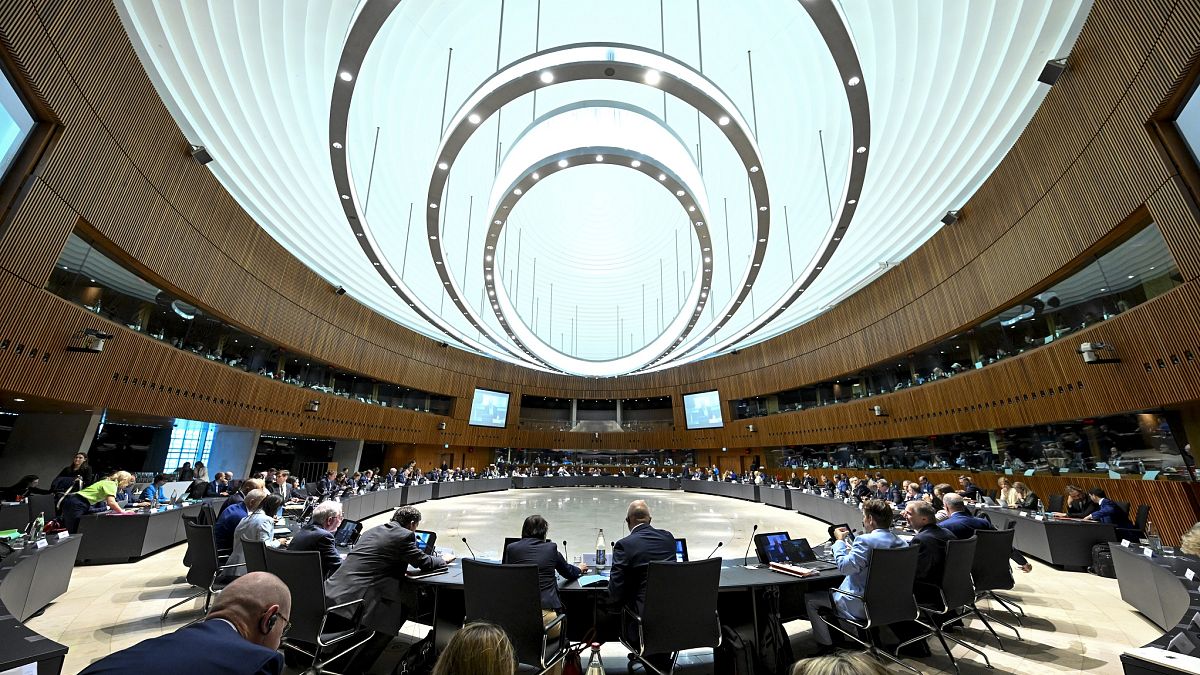European governments are pushing for action on the fast fashion, paving the way for a levies targeting firms whose business model, and marketing strategy, is based low-prices and high-turnover.
Governments should be able to impose levies on lost-cost, high-turnover clothing retailers based on how much their business practices encourage overconsumption and lead to increased waste, environment ministers have agreed.
The measures, agreed at an EU Council summit on Monday (17 June), would be part of a review of EU rules on waste prevention and management that specifically targets the textile and food industries by applying the ‘polluter pays’ principle, making extended producer responsibility (EPR) schemes mandatory.
This would mean companies paying a proportional contribution to the cost of collecting, sorting, transport and treatment of waste garments and footwear. The fee would be modulated based on factors such as durability and the environmental impact of production.
But ministers want to go further when it comes to fast fashion, by adding to the Waste Framework Directive an explicit recognition that most clothes are now disposed of before they are worn out. They implicitly blame aggressive marketing strategies for this increasing trend.
National authorities should have the power to “modulate producers’ financial contributions on the basis of the practices leading to such overgeneration of waste textile, in particular in relation to industrial and commercial strategies”, they agreed in a mandate for negotiations with the European Parliament.
Moves to address the growing environmental impact of fast fashion has set alarm bells ringing in the textile trade, especially companies whose business model is built on a huge and rapid turnover of cheaply produced garments sold via websites and apps.
One such firm, Shein, has already found itself in the legislative line of fire with a French proposal for a fast-fashion tax starting at €5 per item, although that is now on ice pending snap elections.
The Singapore-based Chinese firm, which saw meteoric growth during the covid pandemic and recently became subject to strict EU regulations reserved for ‘very large online platforms’, claims its on-demand model minimises overproduction and benefits cash-strapped consumers. Shein was approached for comment on the ministerial agreement.
Valérie Boiten of the Ellen MacArthur Foundation, an NGO, saw tightening of regulations as “an opportunity to move beyond the traditional focus on collection and recycling” and focus also on product design, repair and reuse to move away from “the current take-make-waste model”.
In a report into the impact of fast fashion, the foundation noted that more than 80% of discarded textiles are either incinerated, landfilled, or end up as environmental pollution, and that separate collection and recirculation cannot be economically viable without a fee-based EPR system.
“Ultimately, we need to move away from the current take-make-waste model which predominantly extracts non-renewable resources to place new items on the market,” Boiten told Euronews. “EPR can help achieve that, although it is not the only solution required.”
Theresa Mörsen of the campaign group Zero Waste Europe praised member states who “had the good sense to openly voice their intentions to end fast fashion” while negotiating the reform.
The tighter rules on fast fashion mirror a joint proposal circulated earlier this month by Austria, Finland, France and the Netherlands. The legislation is subject to further amendment in negotiations with the European Parliament, which adopted its negotiating mandate in February.

